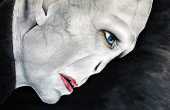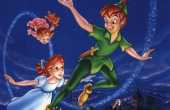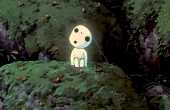Adnan Bey
Writing is my life, my love, my passion, my hobby. I was born in rural Kentucky, USA and now live abroad in Lebanon where I majored in English Language and Literature.
Correspondent II
- Plebian Penman
- Common Writer
- Aristocratic Author
- Lurker
- Pssst
- Hand Raiser
- Vocal
- Outspoken
- Sharp-Eyed Citizen
- Town Watch
- Detective Deskman
- Penman Patrol
- Motivational Columnist
- Phi phenomenon
- Actor
- Animator
- Animaniac
- Otaku
- Article of the Month
- ?
- Articles
17 - Featured
16 - Comments
354
- Ext. Comments
115 - Processed
124 - Revisions
108
- Topics
36 - Topics Taken
5 - Notes
79
- Topics Proc.
106 - Topics Rev.
19
- Points
4714 - Rank
14 - Score
3585
Latest Articles
Latest Topics
The curse of originalityA common critique of any new movie, book, tv show or anything, a common criqitue of any new story in the written medium, (whether script writing or otherwise) is the lack of originality. Originality is defined as 1) existing from the beginning, 2) created personally by someone or 3) not dependent on other ideas. But is anything at all independent of ideas, or ‘original?’ One can now start to argue that everything’s been done before, from new world with strange creatures, to magical schools, to a climactic battle between good and evil. I pose three question: Does originality exist any longer? Does originality need to be redefined? Or do we need to change the way we criticize storytelling?
|
Published | Time travel in fictionThere’s a lot of time travel in fiction and many times, it makes no sense. Sometimes, the nonsensity is a strength, other times a weakness. Examples of media that use this trope (not necessarily have to be used) are Steins;Gate, Harry Potter and the PoA and of course, Avengers: Engame and Back to the Future. This topic should explore when time travel is done right, what constitutes it being done right in the writer’s opinion, and of course, delve into the types of time travel (multiverse, paradox and time loop), and whether it’s a good idea for fiction to use it. Perhaps a good idea would be to examine how differently this trope is used in different medias, whether TV or film.
|
When should shows die?Many times in television, TV shows air way past their expiry date. That is to say, it got old, it got ridiculous, and it’s still airing. Other times, genuinely good shows have been cancelled despite a good following. Sometimes, a show is cancelled after several seasons, perhaps due to lack of ideas and not wanting to ‘milk the cow’ so to speak. Other times, a show is done to death regardless. This article should explore why. Explore what makes both happen. WHat are the network’s incentives to keep a show running? Do ideas have anything to do with it, is it what they believe audiences want? An agenda? All three? When, ideally, should be the time to cancel a show or keep it going. |
When Filler is GoodSometimes, filler is dreaded. It’s a time when an Anime fills in a gap with unneeded material, usually to give it’s source material time to give them more material, and fans start letting out a groan of frustration. But it’s not always bad. Sometimes, it’s good. This article would explore when filler is actually good, and by good, we define it as something that, in a way, adds something to the fictional world or plot of the show.
|
What Makes a MusicalIs it correct when people say that a musical must have a basis on stage? What, by definition is a musical? Should Disney movies count as musicals? Must musicals be live-action or can they be animated? Does Mary Poppins count? What strictly, is a musical?
|
Are MMOROPG's Taking Over the Video Game Industry?Will there come a point where systems and consoles are obsolete and the franchises migrate to online instead. We’ve seen it happen with Legend of Zelda and Elder Scrolls. Might this happen with Pokemon? Kingdom Hearts? Will this repel some fans or bring in new ones? |
Filler Outside AnimeAnime is mostly known for filler, but sometimes, even books or movies, TV shows or anything else, can have filler too. This article would examine such instances and how they were received.
|
When Anime EndsSometimes, an Anime ends before it’s supposed to, or it ends in a poor way, a way devoid of any meaning. Surely it’s not just a decision on the part of the directors to discontinue it without giving a coherent ending. Anime like Pandora Hearts, Blood Lad, and Darker than Black gives that sort of vibe. Why does this happen, what options can a viewer explore if they want to satiate their hunger for more?
|
Latest Comments
| Celebrating, Analyzing, and Resurrecting Fillmore! | |
I loved Fillmore as a kid and as a teenager. It was one of the cartoon lineups I looked forward to in the afternoon, after school. Excellent article and defense of a forgotten show. | Celebrating, Analyzing, and Resurrecting Fillmore! |
Eh… if it is, it’s not part of the Disney movie. I never saw any such ending. | The Darker Corners of Pinocchio |
Good question. I usually despise it when people come back from the dead but Han coming back… I’d be happy but at the same time, I’d be underwhelmed, disappointed. So… mixed feelings, mostly pissed off. | Gosh, the Main Character Is Dead!? So, When Do They Come Back? |
I believe TV trope refers to it as Death is Cheap. | Gosh, the Main Character Is Dead!? So, When Do They Come Back? |
Well, I dunno about the book but the movie implied he was brought back because God did it. | Gosh, the Main Character Is Dead!? So, When Do They Come Back? |
a la Dragon Ball Z. | Gosh, the Main Character Is Dead!? So, When Do They Come Back? |
I actually really hate it when characters resurrect in anything. The only exception was Gandalf and I made that exception in spite of my usual standards. I despise DBZ for that reason. I can’t stand resurrection freely handed out just because. | Gosh, the Main Character Is Dead!? So, When Do They Come Back? |








Disney was pretty good at treating schools as a city or a random place to be. Check out Recess. With people like a King, and a Hustler kid, and a pen to keep the animals/kindergardeners out is all you need. It souds stupid but it’s actually really a creative way of telling kids how the world works.